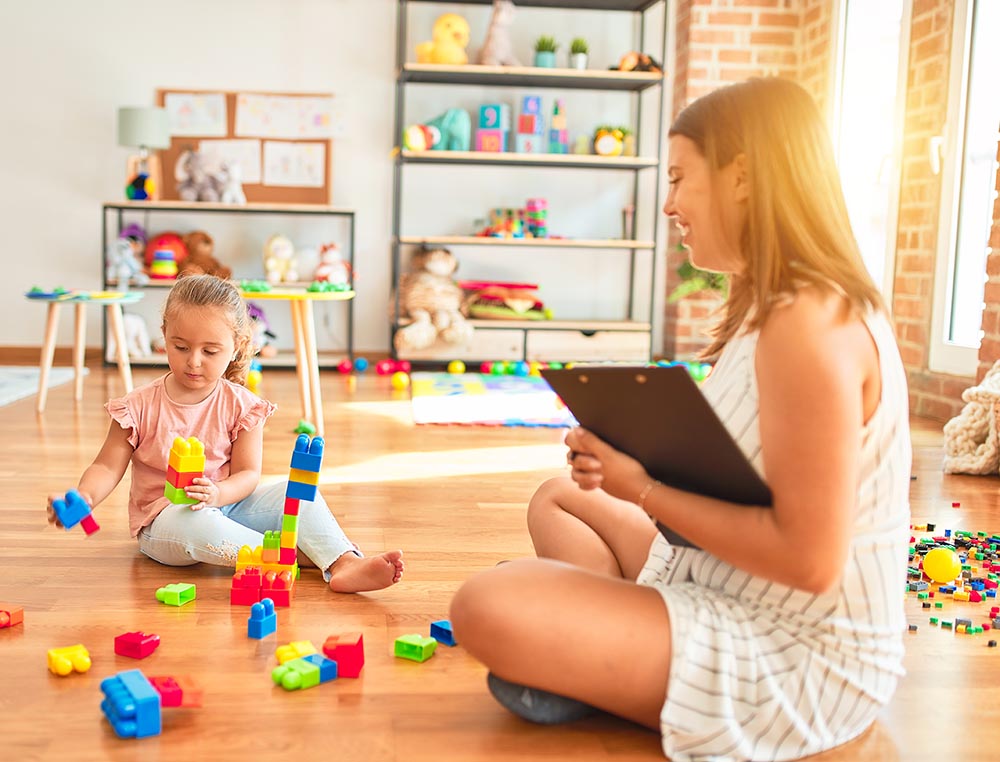Furthering our commitment to helping individuals and families regain and maximize their ability to function well in life, Family Restoration Counseling Services is proud to offer play therapy as an option for our youngest clients – babies, toddlers and school-aged children. A widely researched and proven counseling modality, play therapy is conducted by highly trained and certified licensed play therapists. Play therapy may be offered as an adjunct to other therapy services, such as Blended Family Counseling or Grief and Loss Counseling, or it could be the sole therapy the client receives. Learn more about this unique approach below and feel free to contact us for more information about play therapy.
 What is Play Therapy?
What is Play Therapy?
The Association for Play Therapy defines play therapy as “the systematic use of a theoretical model to establish an interpersonal process wherein trained play therapists use the therapeutic powers of play to help clients prevent or resolve psychosocial difficulties and achieve optimal growth and development.” In layman’s terms, play therapy is therapy appreciative of the way children think, process and relate to adults. In short:
- Successful therapy requires establishing a connection between the client and the therapist.
- This connection requires communication.
- Successful therapy is predicated on an awareness of, and investigation into, emotions.
- Play therapy fosters connection, promotes communication and supports emotion exploration.
Children do not always have the language to express what they are feeling in words. They may also have challenges relating to an adult in a traditional clinical setting. Play is a universal language. Children are accustomed to playing – with other children and with adults. Playing can disarm an anxious child in an unfamiliar setting. It can foster rapport in new and unfamiliar relationships. Once rapport is established and the therapist gains familiarity with the child, through the process of the play, emotions, behaviors and tendencies begin to unfold.
What Might Play Therapy Involve?
Though on the surface it may look like simple play time, play therapy is much more. Extensively trained in how to probe and observe, the therapist uses the play time to investigate behaviors, feelings and emotions. She might, for example, set up situations that mimic what the child would experience or feel in real life to observe his reaction. The specifics of the play will vary based on the age and personality of the child. The therapist might invite the child to choose from several activities in order to identify what the child enjoys doing.
Play therapy activities might include:
- Coloring or painting
- Playing with blocks or cars or dolls
- Engaging in a science experiment
- Building a mechanical device
What Can Play Therapy Treat?
Play therapy can be used to address a number of mental health concerns in children, including:
- anger management
- conduct disorders
- grief and loss
- divorce
- crisis and trauma
- anxiety
- depression
- attention deficit hyperactivity (ADHD)
- autism
- physical and learning disabilities
The act of play is comforting and disarming and serves as a valuable communication tool. Play therapy is one innovative way a mental health professional can get to know a child in order to begin productive therapy. Contact us today if you are interested in learning more about this approach for your child.
